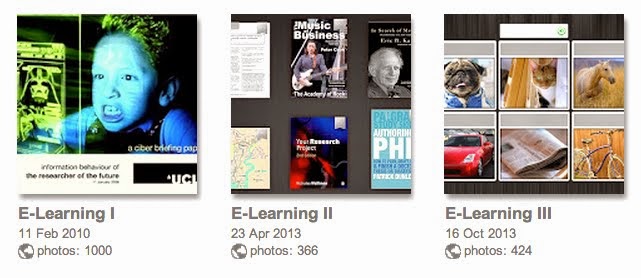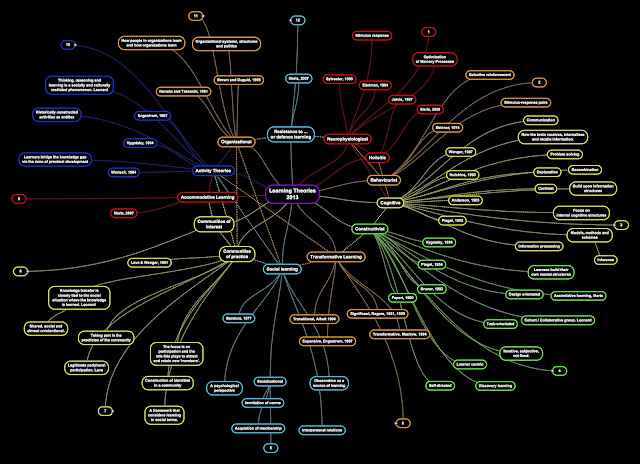Home » E-Learning » MA in Open & Distance Education » H800: Technology Enhanced Learning – practices and debates
Category Archives: H800: Technology Enhanced Learning – practices and debates
My MAODE
My Masters in Open and Distance Education (MAODE) with the Open University (OU)
H807: Innovations in eLearning – Learning outcomes
H800: Technology-enhanced learning: practices and debates
B822: Creativity, Innovation and Change
H808: The e-learning professional
H810: Accessible online learning: supporting disabled students
This completes the Masters in Open and Distance Education (MAODE)
Taken in addition as continual professional development
H809 Practice-based research in educational technology
H818: The Networked Practitioner
Picasa Web Galleries – My Master of Arts in Open and Distance Education in 1,790 images
Google offers a myriad of ways to share content, whether images or words, from galleries to entire conversations. with circles and hangouts. Unwittingly I’ve been part of their ‘game’ since the outset, an early adopter of Picasa having migrated from Flickr. I’ve not invited much in the way of sharing though I now have over 175 ‘albums’ some of which contain a thousand images (the album max). I have THREE album galleries of screengrabs and photos, graphic mash-ups and such like spanning the three years and nine months I’ve been on the MA ODE. This current E-learning III album is taking everything from H818. It is in every respect an OpenStudio platform – if I chose to share its contents then people may, with various copyright permissions (creative commons) use and re-use the content – though plenty of it I grab as a personal aid memoir and is therefore of copyrighted material. I make no apologies for whatever copyright permissions I breach and try to avoid breaking OU guidelines and rules otherwise I’d have grabs from Skype and Elluminate sessions in here. The value of these becomes greater over time – it is a short hand back into a topic, and in time, indicative of how swiftly things are moving. These platforms are leaking out into formal learning contexts; there could be a tipping point, where someone or something happens that galvanises massive interest, say the ‘Stephen Fry’ personality of Twitter, or the Arab Spring of Twitter where J K Rowling or Tracey Emin open their galleries to the world. Meanwhile, without meaning to be unnecessarily derogatory, OpenStudio is the ‘sheep pen’ while Picasa Web Galleries or Google Galleries are the ‘market’ – the sheep pen is closed and local, while the market is global, open, virtual, connected and online.
I have THREE e-learning album galleries of screengrabs and photos, graphic mash-ups and such like spanning the three years and nine months I’ve been on the MA ODE.
This current E-learning III album is taking everything from H818. It is in every respect an OpenStudio platform – if I chose to share its contents then people may, with various copyright permissions (creative commons) use and re-use the content – though plenty of it I grab as a personal aid memoir and is therefore of copyrighted material.
The value of these becomes greater over time – it is a short hand back into a topic, and in time, indicative of how swiftly things are moving. These platforms are leaking out into formal learning contexts; there could be a tipping point, where someone or something happens that galvanises massive interest, say the ‘Stephen Fry’ personality of Twitter, or the Arab Spring of Twitter where J K Rowling or Tracey Emin open their galleries to the world. Meanwhile, without meaning to be unnecessarily derogatory, OpenStudio is the ‘sheep pen’ while Picasa Web Galleries or Google Galleries are the ‘market’ – the sheep pen is closed and local, while the market is global, open, virtual, connected and online.
Reflection on a decade of e-learning
Having not taken stock for a while it was refreshing and re-assuring to consider the Open University postgraduate modules that I have taken, though it has taken this long to understand the meaning of a module that is approaching its final ‘presentation’. In some cases a better word for this might be ‘sell by date’ especially with a subject such as ‘e-learning’ as at least three of those listed below were on their final or penultimate presentation and it mattererd – ‘H817:Innovations in e-learning’ wasn’t particularly innovative for someone who had worked in the creation of interactive and online learning. I’m used to and value the amount of background theory, but I still feel that in these ‘H’ modules that form the Master of Arts in Open and Distance Education (MA ODE) is considerably biased towards learning in formal secondary and tertiary education, rather than applied L&D in business which interested me most – indeed I know of two people across these courses who quit early on because they were working in a learning creation position in business and felt the modules were not suitably applied. B822: Creativity, Innovation and Change was the exception as however dated some of the content (video content shot in the mid 1990s that included companies that had long since gone out of business and innovations such as laptops the size of a small trunk with a carrier bag of cables) the activities and theory in relation to innovation were timeless – it was also an MBA module. Any of us who have taken part in or hosted learning in an organisation involving games of some kind would have found B822 familiar – much of it also touched on the kind of creativity used in advertising, marketing, PR, events and communications.
H804: Implementing Online, Open and Distance Learning (2001)
H807: Innovations in Elearning (2010)
H808: The Elearning professional (2010)
H800: Technology enhanced learning: practices and debates (2011)
B822: Creativity, Innovations and Change (2011)
H810: Accessible online learning: supporting disabled students (2012)
H809: Practice-based research in educational technology (2013)
I’m continuing with these modules to demonstrate that the standard I am now able to achieve is sustainable so that working in academia, even studying for a PhD is viable. ‘H819:The Networked Practitioner’ is a new module. Reading through the course notes and first units (it came online today and goes live next week) I can see the care, clarity and thought that has gone into it, as well as the substantial use of a variety of online learning tools for ‘connected’ or ‘networked’ learning … what some might call ‘social learning’ but here has more structure to it that that (parameters, goals, set tools etc:). It is tailored, every step of the way, to the production of a conference piece – there is considerable latitude here, but what is meant that you have a presentation that may be given in a variety of formats featuring a choice of core themes develop through the module but set in your ‘world’ or field of interest or expertise.
A teacher is taught to teach something in class, not simply to teach.
I feel that I have learnt over the last three years how to teach online, but I haven’t developed a subject specialism, prefering to date to behave as if I were in an e-learning agency serving the needs of many, disperate clients. For this module, and potentially for one or two beyond, I hope to develop and demonstrate how the history of the First World War can be taught using e-learning – apt as we approach its centenary. In parallel I will be taking a Masters in British First World War studies with the University of Birmingham. This is also a part-time course, and ostensibly ‘distance learning’ – though in this instance the distance component is handled by my driving to Edgbaston once a month for a day of intensive face to face seminars and tutorials. This in itself will make for a fascinating constrast with the 100% online experience of the Open University.
In the back of my mind, whatever the subject, my interest is in how to address the global problem of there being 123 million people who want to study at university, but only 5 million places. Even if every university modelled itself on the Open University there would still be a massive shortfall – the answer must be in Open Learning that is supported, possibly by a huge cohort of volunteer alumni, as well as qualifying participants as they accumulate credits. Somewhere in here there may be a question for me to address with doctoral research.
It’s disengenious of me to say that I’ve been studying online for a decade.
I did a module in 2001 but did no further online learning in the subsequent decade – though I did qualify as a swimming teacher and coach! The reason for thinking about a decade as a period of time in which to study is that some would say it takes this long to become an expert. This comes from a piece of research carried out at the Berlin Conservatoire in relation to muscians and the years of training and practice they need to put in to get them to the concert hall as a soloist. Actually it wasn’t years so much as tens of thousands of hours required – 40,000 I think it was with kids introdcued to the instrument early and pushed by parents and institutions getting the furthest youngest. Martin Weller, Professor of e-learning, suggests that a decade is still the time scale in which someone might be deemed a ‘digital scholar’. John Seely Brown, who has applied learning and e-learning to business in the US, notably at Xerox’s famous research institute, suggested earlier this year that scholarship or expertise of the kind we are talking about may be achieved in five years because online learning can speed things up. People do take two degrees in tandem if they study online. Is there a fast track to a PhD? My perspective as a parent with teenagers is that they could begin a part-time online degree in their A’ Level year and graduate at the same time as getting their A’ level results or the year after.
13 Learning Theories in a SimpleMinds mind map
Fig. 1. Learning Theories. Click on this and you can grab the original in a variety of sizes from the Picasa Web Album where it resides. (Created using SimpleMinds APP)
In an effort to impose some logic these are now grouped and various links also made. The reality might be take a large bowl of water then drip into these 12 coloured inks. The reality of how we learn is complex and will only be made the more so with fMRI imaging and advances in neuroscience.
My favourite Learning Theory here is one that Knud Illeris (2009) came up with – not learning at all, resistance too or defence learning. You just block it. That’s how I did 9 years of Latin and can decline how to love a table – I have no idea anymore what ‘ramabottom’ or some such means either. Ditto French as taught before secondary school and Chemistry – right or wrong, tick and box in a multiple choice each week. Still, for someone who couldn’t give a fig for either this approach got me through on a C grade. For French the ‘holistic’ approach worked a treat – French exchange, then back to hitch through France with some French guys who didn’t have a word of English, then got a job out there. Chemistry worked best with my Chemistry 7 set.
Activity Theory and Communities of Practice are surely in meltdown with the connectivity of Web 2.0?
The nodes and silos are too easily circumvented by each of us going directly to the source. ‘Community of Ideas’ works best for me.
Learning Theories
1) Neurophysiological – stimulus response, optmization of memory processes: Sylvester, 1995; Edelman, 1994; Jarvis, 1987.
2) Holistic – Illeris, 2009.
3) Behaviorist – Stimulus response pairs, Skinner, 1974.
4) Cognitive – Communication, how the brain receives, internalises and recalls information, problem solving, explanation, recombination, contrast, building upon information structures, focus on internal cognitive structures, models, methods and schemas, information processing, inferences.; Wenger, 1987; Hutchins, 1993; Anderson, 1983; Piaget, 1952.
5) Constructivist – Learners build their own mental structures, design orientated, assimilative learning (Illeris, 2009); task-orientated, cohort/collaborative group. Leonard, 2010): Vygotsky, 1934; Piaget, 1954; Bruner, 1993; Papert, 1980.
6) Transformative Learning – significant (Roger, 1951, 59); Transformative (Mezirow, 1994); Expansive (Engestrom, 1987); Transitional (Alheit, 1994).
7) Social – Socialization, a psychological perspective, imitation of norms, acquisition of membership, interpersonal relations (Bandura, 1977)
8) Communities of Practice – The focus is on participation and the role this plays to attract and retain new ‘members’; knowledge transfer is closely tied to the social situation where the knowledge is learned, (Learnard, 2010); shared, social and almost unintentional; legitimate peripheral participation (Lave, ); taking part in the practices of the community. A framework that considers learning in social terms. Lave & Wenger, 1991.
9) Communities of Interest –
10) Accommodative Learning – Illeris, 2007.
11) Activity Theories – Learners bridge the knowledge gap via the zone of proximal development, Wertsch, 1984. Historically constructed activities as entities. Thinking, reasoning and learning is a socially and culturally mediated phenomenon. Learnard, 2010. Engestrom, 1987; Vygotsky, 1934; Wertsch, 1984.
12) Organizational – How people in an organisation learn and how organisations learn. Organizational systems, structures and politics. Brown and Dugiod, 1995. Noaka and Takeuchi, 1991.
13) Resistance to/defence learning – Illeris, 2007
I LOVE the way the brain will throw you a googlie. It’s why we’re human.
And then there’s this – 12 grabs of an Activity System looking like Toblerone.
One per month, one per hour.
This is the point. The thing is
a) a grab in time
b) unstable
c) a construct or model (as well as a theory).
A theory because it can be re-applied (for now).
Fig.1. Its image explains itself.
Engestrom and others go to great lengths to remind us that the model/theory of an Activity System is a snap shot in time – that even as we look at it things are moving on, that the relationships don’t simply change as a result of the interactions with each other – but because the whole thing shifts.
OK. Take a chocolate triangle of activity Theory and visualise it in sequence. Better still, drop what you are doing and go and buy some.
Now take a piece and eat it.
The logic remains equally sound when I suggest that by consuming a moment of the Activity System in its last iteration you are enacting what the Internet has done and is doing.
This is what the connectivity of the Web does – the degree and scale of connections is overpowering and consuming.
One step more.
That triangle of chocolate, nougat, almonds and honey that I see as a multi-sensory expression of an Activity System may be digested in the stomach, but its ingredients hit you in the head.
It’s a brain thing.
Which explains my interest in neuroscience.
It happens. It should be visible. It can be measured.
Just reading this a million Lego Characters are kicking a few more million molecular bricks along a dendrite in part because they must, then again just to see what happens (yes, I have just read ‘Neuroscience for Dummies’). So some stick in odd places. Some will hit the mark (whatever that is) while another will remind you of the very moment you first nibbled on Toblerone.
I LOVE the way the brain will throw you a googlie. (as a fraction of the planet know cricket other metaphors are required. I never even played the game as I was deemed rubbish – actually, though no one spotted it in five years of prep school, I needed glasses).
On the one hand, my interest is to take a knife to all of this, chop it off and put it in the compost bin so that I am left with something that is ‘tickable’, on the other hand I want to indulge the adventure of the composting process.
Where do I stand academically? Where and what next? And the madness of being.
Master of Arts in Open and Distance Education (MA ODE) with the Open University, UK (OU)
H800: Technology-enhanced learning: practices and debates
H807: Innovations in eLearning – Learning outcomes
H810: Accessible online learning: supporting disabled students
B822: Creativity, Innovation and Change
H808: The e-learning professional
This completes the Masters Degree. I graduate on Saturday 27th April 2013
Currently (March 2013) I am taking H809 as a bridge towards doctoral research or professional consultancy. Complete in June 2013.
H809 Practice-based research in educational technology
I joined the #H817open MOOC for one part of this module. I will register for 2014
H817: Openness and innovation in e-learning.
Where do I stand academically? Where and what next? And the madness of being.
Masters in Open and Distance Education (MAODE) with the Open University, UK (OU)
H800: Technology-enhanced learning: practices and debates
H807: Innovations in eLearning – Learning outcomes
H810: Accessible online learning: supporting disabled students
B822: Creativity, Innovation and Change
H808: The e-learning professional
This completes the Masters Degree. I graduate on Saturday 27th April 2013
Currently (March 2013) I am taking H809 as a bridge towards doctoral research or professional consultancy. Complete in June 2013.
H809 Practice-based research in educational technology
I joined the #H817open MOOC for one component of this module. I will register for 2014
H817: Openness and innovation in e-learning.
Related articles
- Why skiing is my metphor for life and learning (mymindbursts.com)
- Martin Weller and the MOOCers (mymindbursts.com)
- Openness in Education WK1 MOOC (mymindbursts.com)
- Making swim coaching a tad easier with SwimTag (mymindbursts.com)
- How to visualise learning – think Lava Lamps! (mymindbursts.com)
- How more deeply embedded is a visual memory if you crafted the drawing or painting that is the catalyst for its recall. (mymindbursts.com)
- No. 5 aha moment: the Web as a universal standard (downes.ca)






